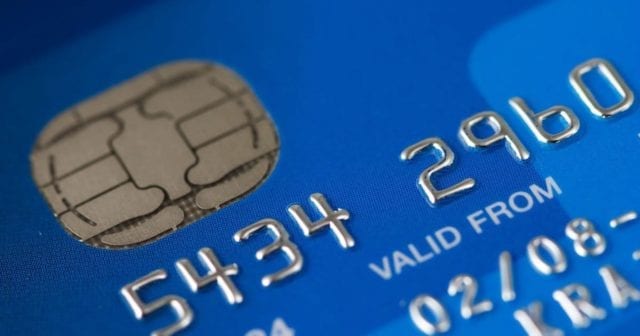With announcements starting in 2011, by now, you’ve learned that debit and credit cards are transitioning to chip technology. You may even have received one or two for your own personal accounts by now. As of October 1, 2015, point-of-sale machines at all U.S. retailers needed to be able to handle chip technology.
Why is this important? Because as of October 2015, the liability for credit card fraud shifted from banks to retailers.
CHIP TECHNOLOGY IN CREDIT CARDS
Over the past several years, credit card fraud and theft has become a multi-billion dollar problem each year. Faced with an ever-growing problem with no end in sight, the Payment Card Industry (PCI), a self-regulating body overseeing any entity that accepts or issues payment cards, set a new rule. By 2015, point-of-sale (POS) machines needed to accept “chip cards.”
The shift in technology from the standard magnetic stripe to an embedded chip in each card is meant to reduce fraud, save money, and protect card holders. In the past, all of the data on the card was stored in the magnetic stripe, permanently, which meant it could be duplicated. With this new technology, the chip issues a one-time use code to authorize payment. Even if someone has the code, due to a security breach, it can’t be used a second time.
CYBER LIABILITY INSURANCE
Credit card fraud and data breaches are often covered under cyber liability insurance – depending on the policy. If you’ve never considered this type of coverage before, now is the time. If one of your customers’ accounts are breached when they used a “chip card” in your establishment, you can be held liable for the damages.
Cyber liability insurance covers different types of breaches: privacy breaches, viruses, cyber extortion, denial of service attacks, data destruction, and more. Currently, some policies don’t mention “chip card” breaches, while others very clearly require compliance with the PCI – which says you must have a POS machine with a chip reader. If you don’t have that technology yet, begin working on getting it now.
When a breach occurs in your business relating to credit card information or other personal data, as the business owner, you’re obligated to:
- Notify everyone in your database affected by the breach – this could be thousands of people
- Pay for credit monitoring services for everyone affected for a specific amount of time
- Pay damages if found liable for the breach
- Possibly pay legal fees and court costs associated with any judgments against you
With cyber liability insurance, those costs are covered, and instead of being bankrupted by a breach, you can work on dealing with security issues and winning back the trust and confidence of your customers.
If you haven’t switched out to new POS machines for your business, make sure to start as soon as possible. If you don’t have cyber liability coverage for your business, contact us today and let us help you protect your business.

